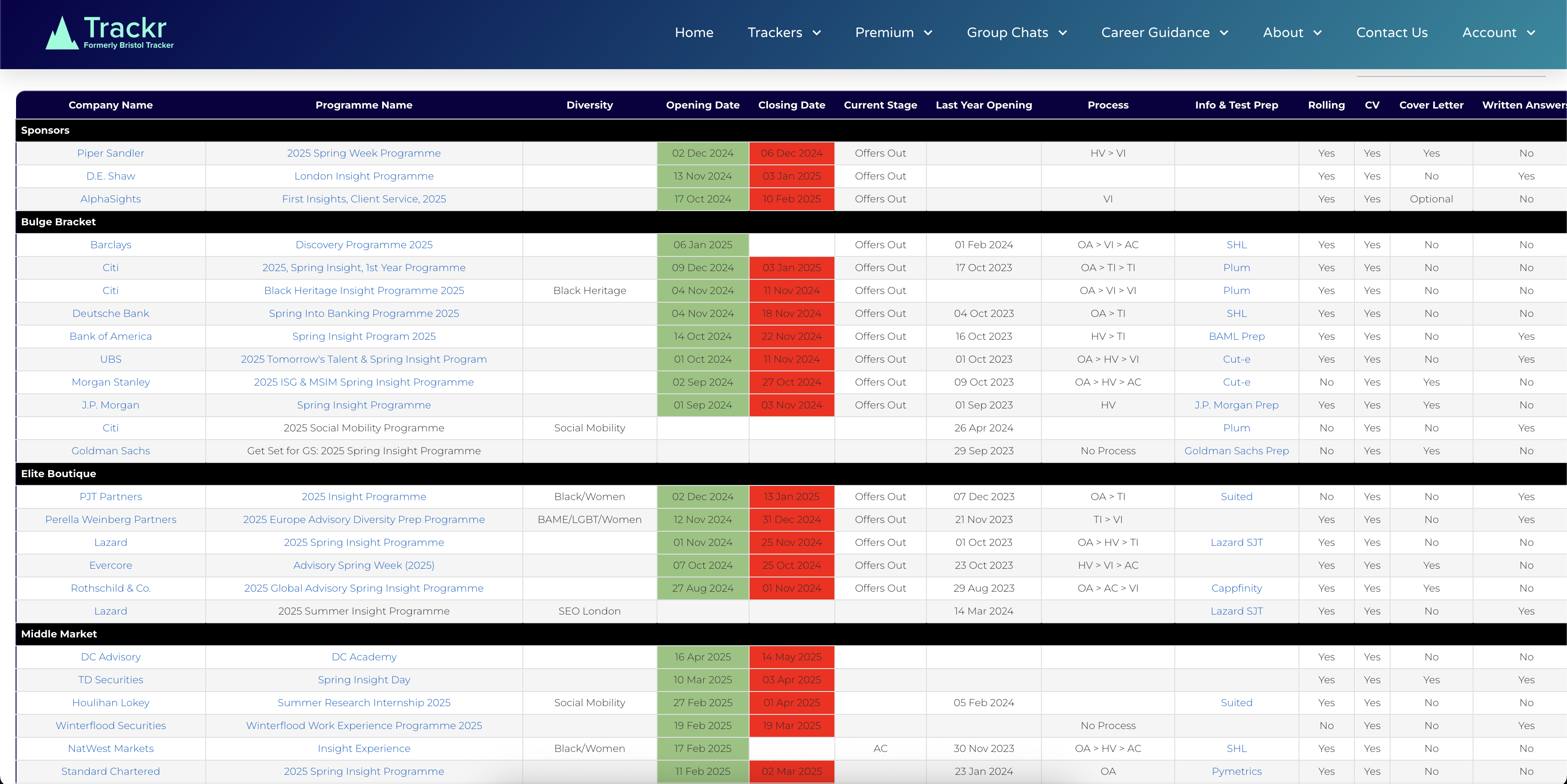Introduction
Hi, I'm Aahil. You might know me from LinkedIn, TikTok, or maybe you've had the pleasure of meeting me in person.
As a first-year Computer Science student at King's College London, I secured Spring Week offers from Citadel, Millennium, DRW, Flow Traders, Rothschild & Co, Blackstone, HSBC, and BNP Paribas. I'm not a genius, and I don't come from a 'target' university like Oxford, Cambridge, Imperial, LSE...
At first, I thought breaking into competitive industries like Quant and Investment Banking was out of reach. I proved myself wrong. Whether you're at a target or not, this guide will break down exactly how I did it, and how you can too.
What is a Spring Week
A Spring Week, or Insight Week, is typically undertaken during the Easter holidays, designed to give you insight into the firm and industry. They are available to first-year students (or second-year students on a four-year course) and are usually a few days to one week long. (Source: LSE Careers Blog)
Many Spring Weeks are 'convertible', either judging your performance during the week or asking you to complete a follow-up interview for a Summer Internship the following year.
Even if you don't convert, having a Spring Week on your CV is a great way to stand out.
It's important to understand the types of firms that offer Spring Weeks. Here's a breakdown of the main categories:
- Bulge Bracket Banks: JPMorgan, Morgan Stanley, Deutsche Bank, Citi, etc.
- Elite Boutiques: Lazard, Evercore, Rothschild & Co, etc.
- Middle Market: RBC, Jefferies, HSBC, Houlihan Lokey, etc.
- Consulting: McKinsey, BCG, Bain, etc.
- Big 4: Deloitte, PwC, EY, KPMG.
- Asset Management: BlackRock, Citadel, Fidelity, Schroders, etc.
- Quant Trading: Jane Street, Citadel Securities, IMC, Optiver, DRW, etc.
How to apply to Spring Weeks
Trackr is the best way to find and apply to Spring Weeks.
Finance: the-trackr.com/uk-finance
Tech: the-trackr.com/uk-technology
I checked Trackr daily and applied as soon as an application opened. Applications are typically reviewed on a rolling basis, so the earlier you apply, the better your chances. For reference, every Spring Week offer I got, I had applied within the first 3 days of opening.
Rolling: reviewed as soon as you apply, so the earlier you apply, the better your chances.
Non-rolling: reviewed after the deadline, so no rush.
How I applied so fast
- Check Trackr daily
- Save your CV to your phone or cloud storage for quick access
- Write a Cover Letter fast, or prepare one before applications open
- Keep key links (LinkedIn, GitHub) handy in your clipboard or notes
- Join a groupchat where people share openings (Trackr WhatsApp GC)
What is the Process?
Most Spring Week applications follow a multi-stage process. Not all firms use every stage, but this is the most common flow:
CV & Written Questions
Your CV is reviewed first. Some firms shortlist purely based on your CV (e.g. Citadel, Jane Street).
Online Assessment (OA)
Usually aptitude tests (numerical, logical reasoning, or situational judgment). Software Engineering firms typically use HackerRank (LeetCode-style coding questions) and Quant firms typically use math-based tests.
HireVue (HV)
One-way video interview where you record your answers.
Video/Phone Interview (VI/TI)
A live conversation with a recruiter or analyst.
Assessment Centre (AC)
Not very common for Spring Weeks, but some firms use them.
Offer
You'll be notified by an email or phone call if you're successful.
Tracking Applications
People typically use a spreadsheet on Excel, Google Sheets, or Notion. Here's mine:
